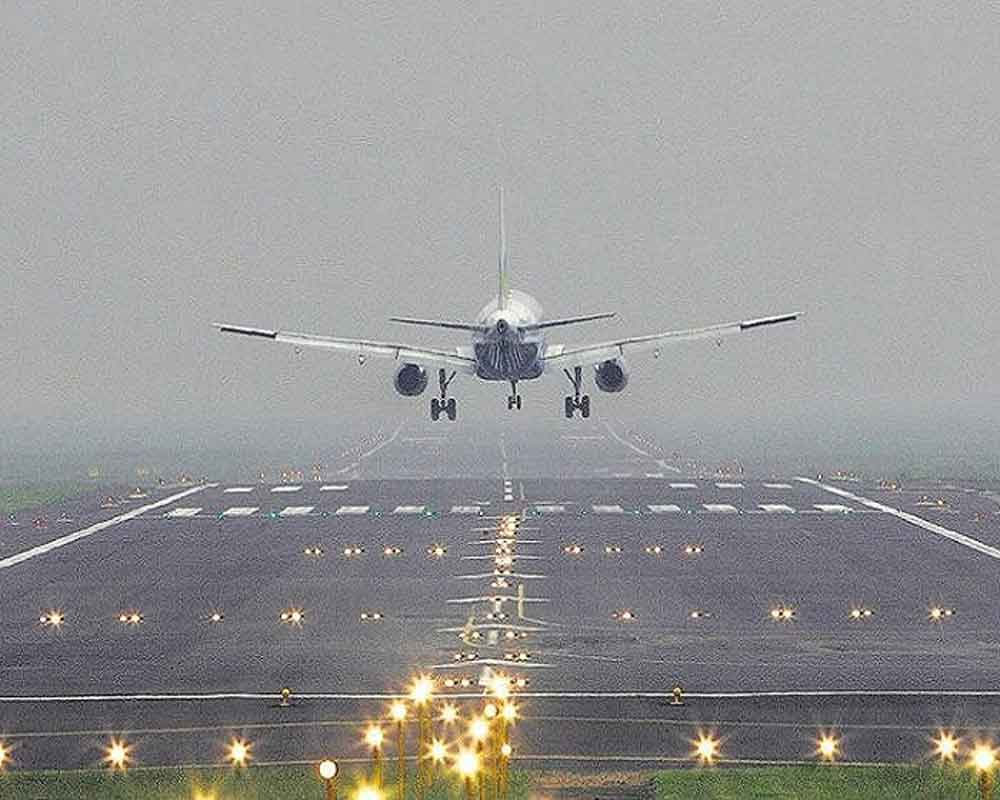The UK government came under strong criticism on Sunday for not adding India to the “red list” travel ban at the same time as Pakistan and Bangladesh in early April, which is feared as a major factor behind a rapid spike in cases of COVID-19's B1.617.2 variant first identified in India.
Downing Street said it had taken a “precautionary action” to ban travel from India on April 23, six days before the B1.617 variant was put under investigation and two weeks before its highly transmissible subtype, B1.617.2, was labelled a Variant of Concern (VOC).
According to latest Public Health England (PHE) data, around 20,000 people travelled between India and the UK before the red list ban and around 122 of them arriving from Delhi and Mumbai between late March and April 26 were detected with the VOC.
“Prior to India being placed on the red list in April, anyone coming to the UK had to test negative and quarantine for 10 days," a UK government spokesperson said.
However, the Opposition Labour Party attacked the government for a delay in acting when the variant first emerged at the end of March.
“This was not inevitable. They should have put India on the red list. We've had this three-week period in which thousands of people have returned from India, including probably hundreds of cases of the variant,” said Yvette Cooper, senior Labour MP and Chair of the Commons Home Affairs Committee.
“When they did finally add India to the red list – two weeks after they'd added Pakistan on April 9 – they gave travellers four days' notice to rush back. Why didn't they introduce additional testing for those travellers before they were able to get on public transport home,” she questioned.
UK Prime Minister Boris Johnson's planned visit to Delhi at the end of April, which was cancelled as the second wave of the pandemic surged in the country, is being cited by many as among the reasons for the delay in adding India on the “red list” despite higher infection rates per million than its neighbouring countries.
It comes as PHE revealed that cases of the B1.617.2 variant being tracked and traced in the community had more than doubled in a week to hit 1,313 cases this week.
UK Health Secretary Matt Hancock admitted the VOC identified in India spread much more rapidly and may soon become the dominant variant in the country but also highlighted that based on the cases in the hotspot region of Bolton in north-west England, the indications are that those who are unvaccinated are more susceptible to hospitalisation.
He revealed that 18 people currently in hospital due to the B1.617.2 VOC have not had any dose of the COVID-19 vaccine even though they are eligible and urged all eligible over-38s to come forward for their jabs.
“Because of the speed of transmission of this one, it can really spread like wildfire amongst the unvaccinated groups – hence we need to get as many people vaccinated as possible, particularly among those who are most vulnerable to ending up in hospital," he said.
The minister reiterated that the government feels it is the right thing for the lockdown easing roadmap to go ahead as planned for now, with Monday's further easing of rules set to go ahead.
However, a decision on the June 21 complete lockdown easing timeline will be taken on June 14, based on data over the coming weeks to see if the B1.617.2 variant “knocks us off course”.
"We need to be cautious, we need to be careful, we need to be vigilant and we've said – at each step – we will look at the four tests that we have," Hancock told ‘Sky News'.
"We've always said we want this to be cautious, we really want it to be irreversible. New variants are one of the biggest risks to this opening,” he said.
The government, meanwhile, is deploying thousands of extra tests as part of a surge testing programme in parts of England to try to get a hold on the spread of the new variant. The vaccination programme is also being accelerated, with second doses for all vulnerable groups and over-50s brought forward from a 12 week to an eight-week gap.
The British Medical Association (BMA) has expressed serious concerns about the decision to continue with the easing of lockdown restrictions as the B1.617.2 VOC could target the younger unvaccinated group much faster.
"It is a real worry that when further measures lift on May 17, the majority of younger people, who are often highly socially mobile and could therefore be most at risk of a more infectious strain, are not yet vaccinated," said BMA's Dr Richard Jarvis.
Under Monday's easing, legally-binding lockdown restrictions are to be lifted to allow a greater degree of indoor mixing and more hospitality venues to reopen.


























